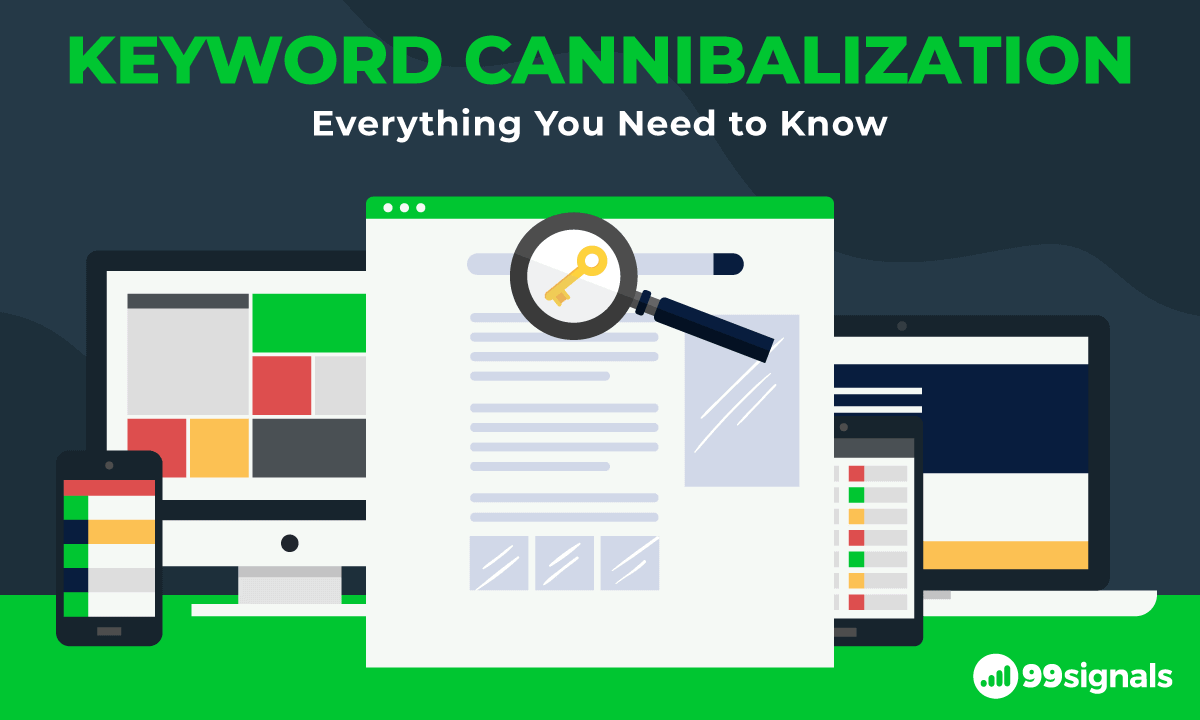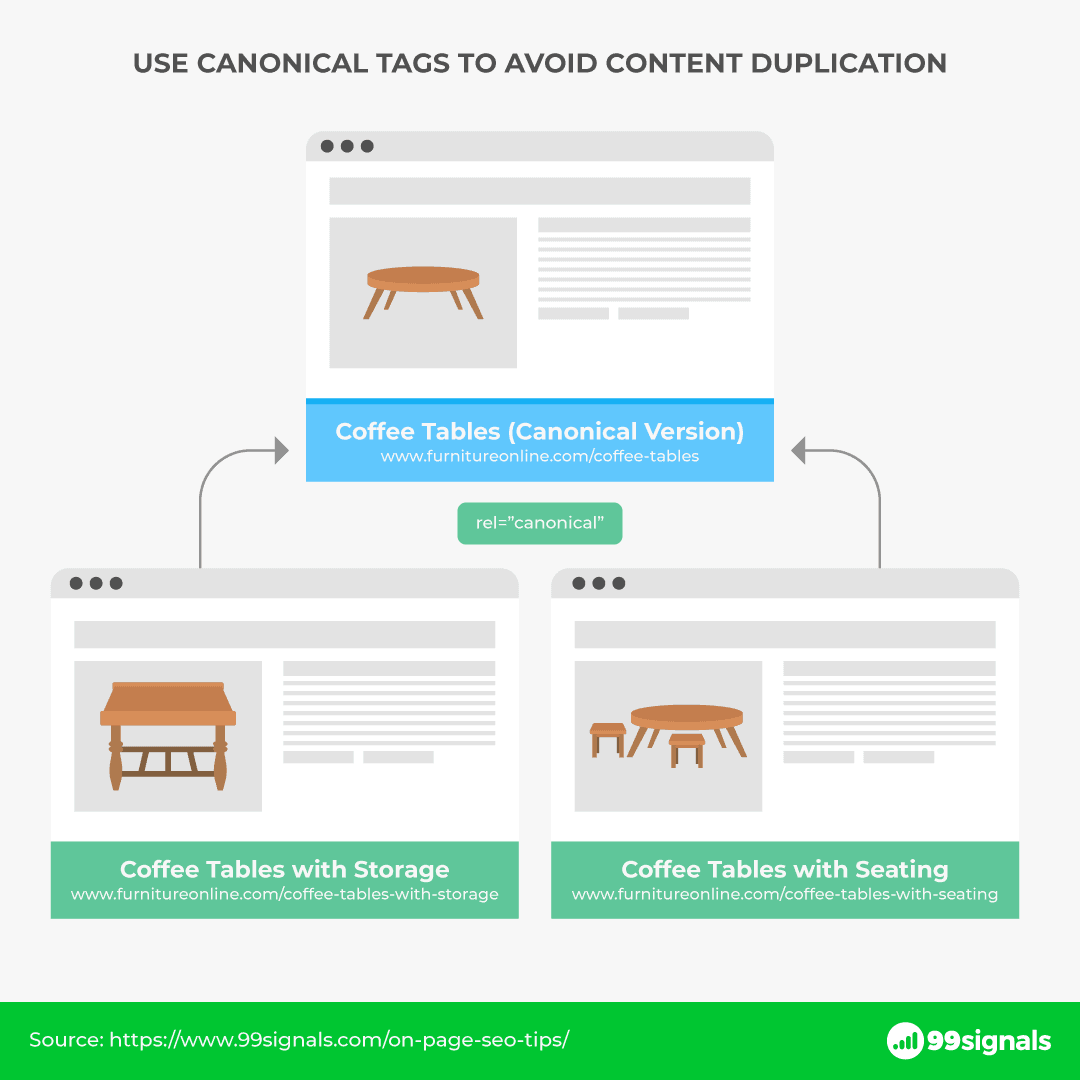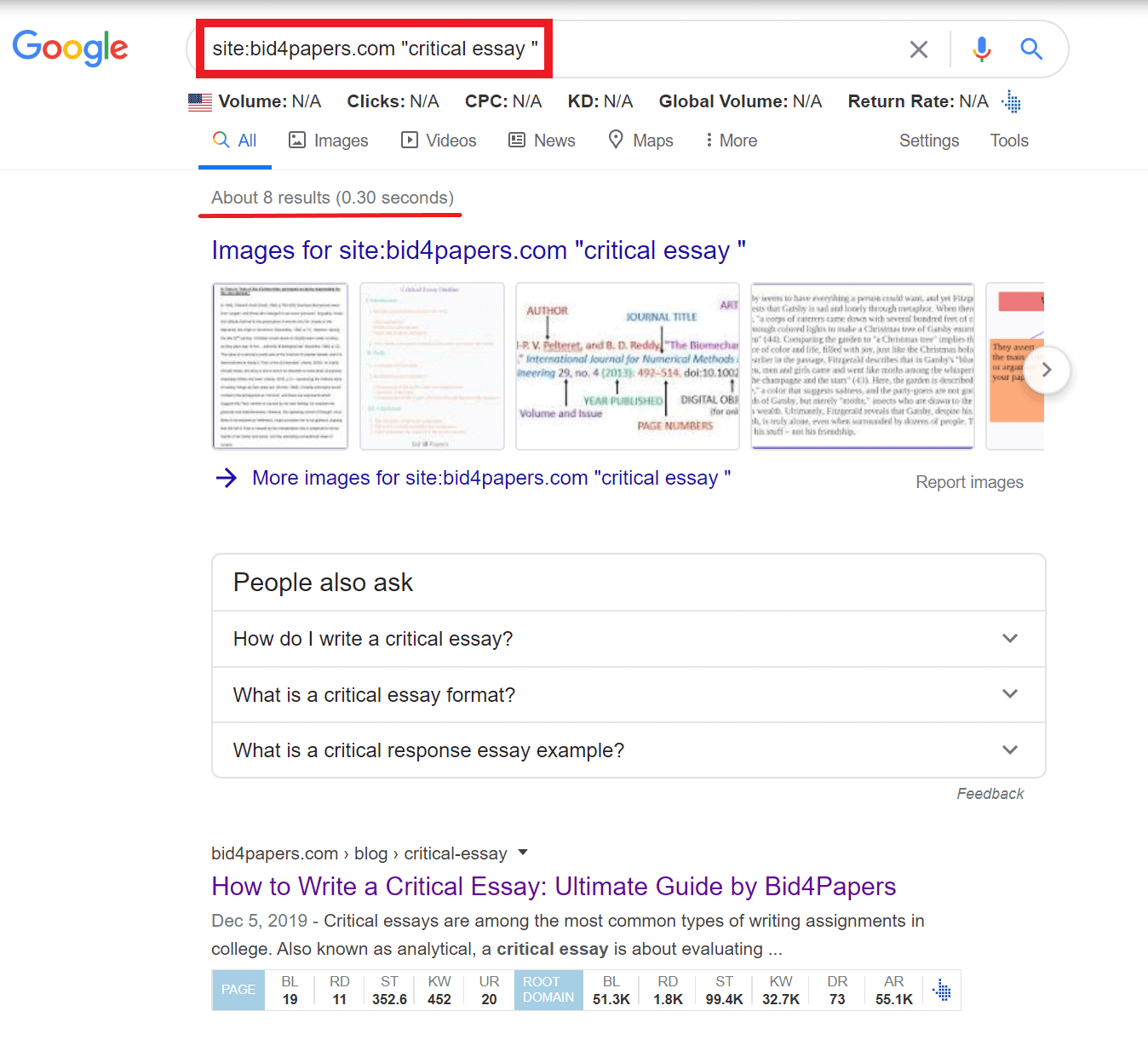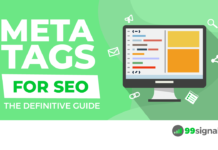
It’s safe to say that nowadays, it’s easier to be “penalized” by Google than it is to be rewarded by it. Lack of basic SEO knowledge can be harmful for your website’s performance and you might even not realize that!
One of such situations is related to the SEO concept of keyword cannibalization. In this article, I’ll explain what it is and help you identify and tackle this problem.
Ready?
Let’s dive in!
Table of Contents
What is Keyword Cannibalization?
To put it simply: Keyword cannibalization happens when two or more of your pages are targeting and ranking for the same keyword.
In such a situation, the search engine is confused as to which piece of content is more relevant and which one should be ranking for a certain term. It can put your SEO strategy at risk and can cause for neither of your pages to be ranking for a targeted query.
For example, a PPC company might have several articles related to “Facebook Ads” and rank for the keyword terms “Facebook Ads examples” in a few of them. They might use these keywords in an article titled “Facebook Ads Best Practices” but also produce a separate article “Best Facebook Ads Examples.”
When both articles are optimized for keywords “Facebook Ads examples,” Google will be unsure which piece of content would be best to show in SERP for the searcher.
Keyword cannibalization is also not desirable because it means two of your pages are competing with each other and they could also be sharing duplicate content (though not necessarily). It’s a red flag for Google and something you should really pay your attention to identify and fix.
Types of Keyword Cannibalization
Truth is, keyword cannibalization is probably to some degree present on most websites. And it should be identified and resolved. Here are the two “places” where keyword cannibalization happens.
1. Content Level
It’s common to see blog posts that essentially talk about the same topic but in different words. It often makes sense to show a different aspect of the topic you want to explore, but if not done carefully, it will be more harmful than helpful.
When talking about keyword cannibalization on the content level, you might need to equip yourself with the right SEO tools to help you identify the potential issues.
For example, Tidio has dealt with this issue recently with two of their articles ranking for the same keyword “how to make a chatbot.” The articles target similar keywords as well as same user intent:
1. How to Create a Chatbot for a Website?

As you can see, the first article is ranking 16th and the second one is in position 15th. The pages have duplicated content and they are competing with each other which is far from ideal.
One way to fix this is to consolidate the article into one and bury the other, which is what Tidio eventually did. Right now, they only have one article on how to make a chatbot and Google has no problems ranking it.
2. Meta Level
The meta level of keyword cannibalization is easier to identify and fix.
It’s very common across eCommerce businesses that have not yet mastered the art of eCommerce SEO. That often happens when you use the exact same title for a few pages. It’s likely to be observed in eCommerce stores because of the multiple categories and subcategories that have the intention to target similar keywords.
For example, take a look at this:
As you can see, the top page with the URL: shirts/all targets two keywords (e.i Polo Shirts & V Neck Shirts) that also have separate pages/URLs built to target them specifically. This can create quite a lot of confusion for search engines.
Here’s how it could look like instead to avoid keyword cannibalization:
As you can see, the pages’ targeted keywords in titles and headers don’t overlap. Using varying titles for each page also increases your chances of bringing more people to your website, as you will be ranking for more organic keywords and therefore, your search traffic potential increases.
4 Reasons Why Keyword Cannibalization Harms Your SEO Performance
As I briefly mentioned above, having two pages targeting and ranking for the same keyword usually means underlying troubles in the long run. Here are four ways in which this situation can harm your website’s performance.
With competing pages, your CTR rate might suffer, as you are splitting it to a few moderately relevant pages instead of one highly authoritative page.
This means that you are competing with yourself in SERP and might often end up with people coming and immediately leaving one of your pages, for example, to go to your next one.
There is nothing worse than people abandoning your website to go back to search as it signals Google that the page they landed on isn’t relevant for the queries they were typing in. As a result, Google can push your site down the SERP.
2. Diluted Backlinks and Anchor Texts
Instead of collecting links to one of your pages and getting it ranked at #1 in Google, you are splitting your backlinks across multiple pages.
This means it will take you more time to rank higher than any of them, as the link building process is often time-consuming. The dilution of links can potentially drag down your rankings for both (or more) pages.
3. Expected Lower Conversion Rate
Your pages won’t get the same number of clicks. One of them will be inevitably performing better than the other one, which means that one will be attracting more organic traffic. It’s possible that the one that’s bringing you more leads and customers will suffer as its CTR will be lower.
With leads landing on other, less relevant websites you are potentially losing chances for converting them as opposed to them coming to your one authoritative page that is bringing you leads.
4. Google Might Devalue the More Relevant Page
As mentioned above, Google might devalue the more important and relevant page in favor of others targeting the same keywords.
That means lost potential leads and sales. With keywords being the same, the search engine can get confused as to which page should be ranking, and your SEO performance will suffer.
Here’s How to Identify Websites Affected by Keyword Cannibalization
In order to check which pages compete with each other, you have to run a content audit and create a keyword matrix.
You can approach this in two different ways – manually using Google Search Console and Google Sheets or using SEO tools like SEMrush, SurferSEO or Ahrefs to identify the issues.
Personally, I like to save time and I use tools to do this. When using Ahrefs, here are the steps:
1. Paste website’s URL in Site Explorer
2. Go to “Organic Keyword” report
3. Download your CSV file with the list of the keywords
4. Create a Google Spreadsheet file
5. Upload to Google Sheets your CSV file with your keyword report
6. Sort keywords A-Z
7. Manually highlight duplicate keywords
Here’s a great video by Ahrefs which explains this process in detail. If your website is young and has only a couple of pages, you could do the process manually, however keep in mind that it’s quite a daunting task.
5 Ways to Fix Keyword Cannibalization
Fortunately, once you’ve identified keyword cannibalization within your content, there are ways you can fix it. Here are a few solutions you can implement:
1. Consolidate Your Content
The first thing you can do is to audit and update your existing content. Each piece of content that is targeting the same keyword can be consolidated into one. That’s exactly what happened with Tidio’s articles targeting the “how to make a chatbot” keywords that I mentioned above.
A good thing about consolidating your content is that it requires little work.
All you have to do is decide which URL is better, then revise your content, take the best out of both articles and edit this content to create one, comprehensive piece. It’s a good idea to track this process in a spreadsheet to get an idea which posts require consolidation.
Image source: Tidio Live Chat
Once you’ve consolidated your content and want to keep the other page(s) still up (maybe because they have already collected some links), you can use a 301 redirect. With that trick, all your traffic coming to the undesirable page will be redirected to your chosen URL.
2. Create Separate Landing Pages
Another thing to think about is creating separate landing pages that will serve as your authoritative pages targeting specific, separate keywords. This might help you avoid creating similar content around one topic.
Instead, you can have comprehensive, authoritative pages, for example for your products or features, that will contain all the information in one place. Often, the less is better and that also applies to your SEO.
Having fewer pages, but targeting separate keywords and investing heavily into your off-page SEO – building a strong backlink portfolio for each of them will pay off in the long run.
3. Re-optimize Your Pages
If you want to keep all pages ranking for the same keyword but fix the problem of cannibalization, you might need to update your existing pages and blog articles. It’s not always necessary to consolidate and get rid of competing pages as sometimes they might be bringing you quite decent organic traffic that you don’t want to lose.
Here’s what Sujan Patel, the founder of Mailshake, shared with me based on his own experience.
“To ensure you’re not putting your website at risk, monitor any possible keywords cannibalization issues by running a site audit at least every 6 months.”
And I couldn’t agree more!
For blog articles, one way to approach this is to go through your content pieces and manually remove any references to that undesirable keyword. This might not make a significant difference as search engines rely also on factors different than keywords, but it won’t hurt to do that.
Next, you should go and change your internal links paying special attention to those with anchor texts which are the same or closely similar to this keyword. You can either remove or add a no-follow tag to all those links pointing to this undesirable other page. If you decide to keep the links it might be worth changing the anchor texts.
Lastly, start an email outreach campaign to change anchored inbound links coming to this page from external websites. That’s the most time-consuming and risky step as some websites might refuse to exchange the link or remove it altogether.
For resolving keyword cannibalization issues on the meta level you have to change your meta titles and consolidate or delete pages that are competing. It’s best to audit your website’s structure and check for duplicates in order to fix them.
4. Canonicalization
A good solution for avoiding keyword cannibalization is using canonical tags (rel=“canonical”). A canonical tag is simply a snippet of the HTML code that defines the main version for duplicate, near-duplicate and similar pages.
When you have multiple URLs ranking for the same keyword, canonical tags can help you assign a higher importance to the chosen version of content – specify which version is the main one.
Using canonicalization is best in situations when you need to keep all URLs that are competing with each other because, for example, they are bringing you tons of organic traffic. At the same time, you need for one of them to rank higher than the other.
Here’s an example of a canonical tag:
Image source: Moz
5. Noindex
Lastly, you can use the “noindex” tag for pages that you don’t want to rank in search engines. This is a useful trick especially for the “category” pages, hence it can be really useful for eCommerce stores that want to avoid keyword cannibalization.
The no-index website will still be accessible but it won’t be ranked in SERP and therefore, it won’t compete with other pages ranking for the same keyword.
Bonus: There is a simple trick to avoid keyword cannibalization in the future. Before creating a new piece of content or a new page, you can check manually whether there are other pages already ranking of the same term.
All you have to do is put this simple formula in Google to audit your existing ranking pages. For example, the analysis of the “critical essay” keyword for Bid4Papers website has shown that 8 of their pages are already ranking for this keyword.
This means that to avoid issues with keyword cannibalization they should not create any more pieces of content that could potentially rank for this term. You can run a similar audit for your own website before you put out new content or build a new page.
Conclusion
All in all, keyword cannibalization could pose a danger to your website’s performance. This topic is still hot in the SEO community and it’s safer to take preventative measures than hope for the best.
Knowing how to identify and fix this issue will help you avoid Google penalizing you and ranking your site lower than it could be potentially ranking. Following the process I’ve described above, you’ll be able to audit your own website and take action to resolve any keyword cannibalization problems.
Good luck!
If you found this article useful, please share it on Twitter using the link below:
Related Articles

















Hey Kas, great piece of information. I had not heard of the SEO term “Keyword Cannibalization” before. Is this similar to term “canonical” ?
Really well explained, Kas.
It was easy to consume, also steps you mentioned were actionable
One thing, Sujan Patel is the founder at Mailshake… so, rectify that.
Thanks,
Arpit